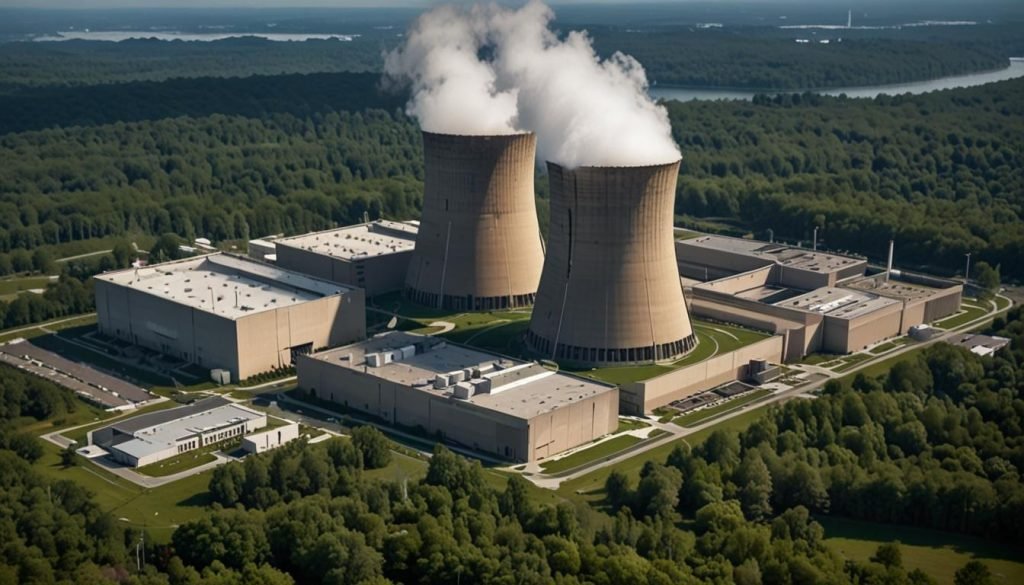The historic agreement marks the first time a U.S. nuclear facility has been revived after decommissioning, aiming to provide zero-emission power for Microsoft’s expanding AI operations.
Three Mile Island Nuclear Plant, once the site of the worst nuclear accident in U.S. history, is set for a revival to power Microsoft’s expanding data center operations. Constellation Energy, the plant’s owner, announced the groundbreaking agreement on Friday, under which Microsoft will purchase 100% of the plant’s output for 20 years. This unprecedented deal marks the first time a U.S. nuclear plant has come back into service after being decommissioned, and the output is set to solely serve a single commercial entity.
The announcement comes amid the tech industry’s pressing need for reliable, zero-emission power sources to sustain the massive energy demands of artificial intelligence (AI) development. Microsoft will draw power from Three Mile Island’s Unit 1 reactor, which was closed in 2019 due to uncompetitive economics. Located along the Susquehanna River near Harrisburg, Pennsylvania, this unit will be part of the Crane Clean Energy Center, named in honor of Chris Crane, the former CEO of Exelon.
Constellation Energy plans to invest approximately $1.6 billion in reopening the plant by 2028, conditional on regulatory approvals, including clearance from the Nuclear Regulatory Commission (NRC). The project will involve extensive safety checks and infrastructure upgrades, including the refurbishment of the turbine, generator, main power transformer, and cooling systems. The plant is expected to run until at least 2054, pending an extension of its operating license.
The revived unit is projected to generate 835 megawatts of electricity, enough to power around 800,000 homes. This capacity will provide Microsoft with the energy required to support its AI data centers located in regions such as Chicago, Virginia, Pennsylvania, and Ohio. The arrangement not only highlights the immense power needs of tech data centers but also underscores the challenges of sourcing reliable, carbon-free energy amidst growing environmental concerns.
Joseph Dominguez, Chief Executive of Constellation Energy, emphasized the strategic importance of nuclear power in maintaining the country’s competitive edge in AI. “The energy industry cannot be the reason China or Russia beats us in AI,” he said. The deal, he added, demonstrates how Silicon Valley’s innovative approach can stabilize the power grid, benefiting all users connected to the PJM Interconnection grid that spans 13 states and the District of Columbia.
Microsoft’s commitment to this agreement is part of its broader strategy to become carbon negative by 2030. Bobby Hollis, Microsoft’s Vice President of Energy, stated, “This agreement is a major milestone in Microsoft’s efforts to help decarbonize the grid.” The deal aligns with Microsoft’s goal of running all its data centers on clean energy by 2025, which they hope will involve feeding significant amounts of carbon-free energy into the PJM grid to support regional power needs.
The deal has sparked reactions varying from those welcoming the economic benefits—such as the creation of 3,400 jobs and an estimated $3 billion in state and federal tax revenue—to concerns about safety and the ethical implications of such a concentrated use of public resources for private enterprise. Earlier apprehensions surrounding Three Mile Island stem from the partial meltdown of Unit 2 in 1979, still regarded as the most severe nuclear accident in U.S. history.
Polls indicate that public sentiment in Pennsylvania is largely in favor of restarting the plant, with a significant majority supporting nuclear energy’s role in the state’s power mix. However, environmental and nuclear safety advocates continue to express reservations, particularly around waste management and the long-term sustainability of nuclear energy.
The move comes amid broader industry trends towards rejuvenating dormant nuclear plants. Similar efforts include the potential restart of Michigan’s Palisades nuclear plant, which has secured conditional federal funding, and other exploratory projects like small modular reactors advocated by nuclear ventures such as Bill Gates’ TerraPower.
The Three Mile Island project underlines a burgeoning reliance on nuclear energy as a viable solution to the large-scale, consistent power demands of modern technology infrastructures, while also paving the way for a broader acceptance of nuclear power’s role in a sustainable energy future.
Source: Noah Wire Services


